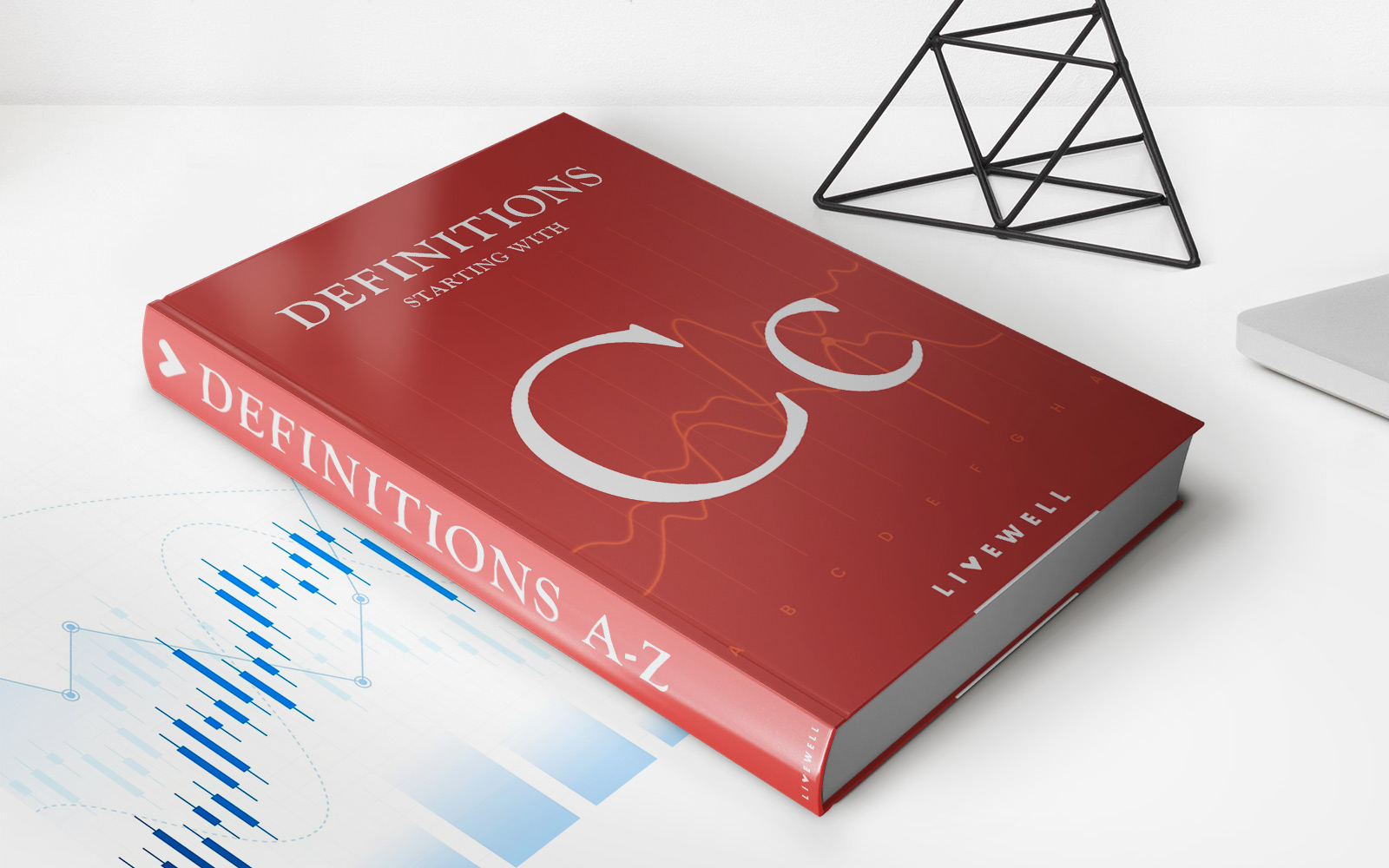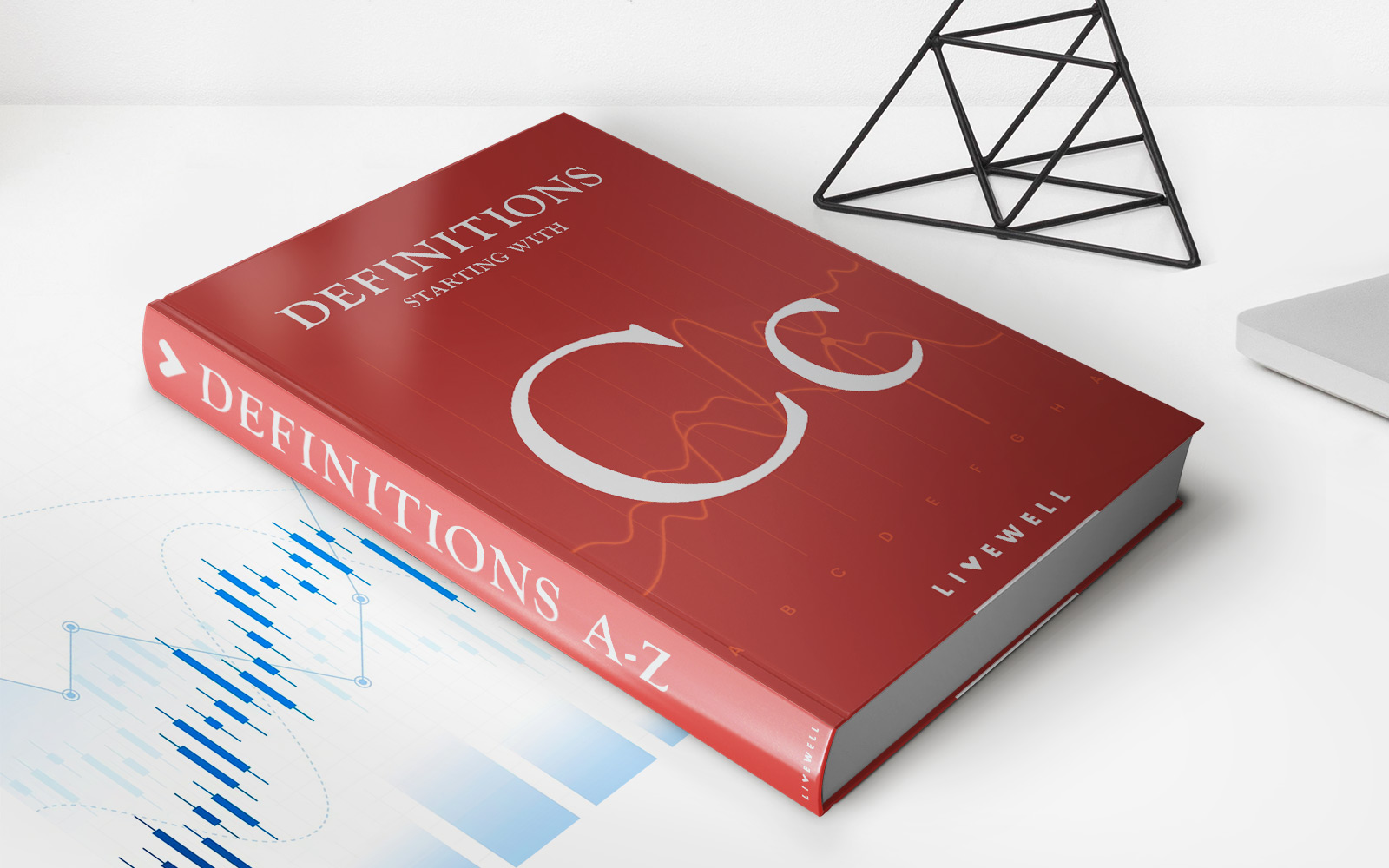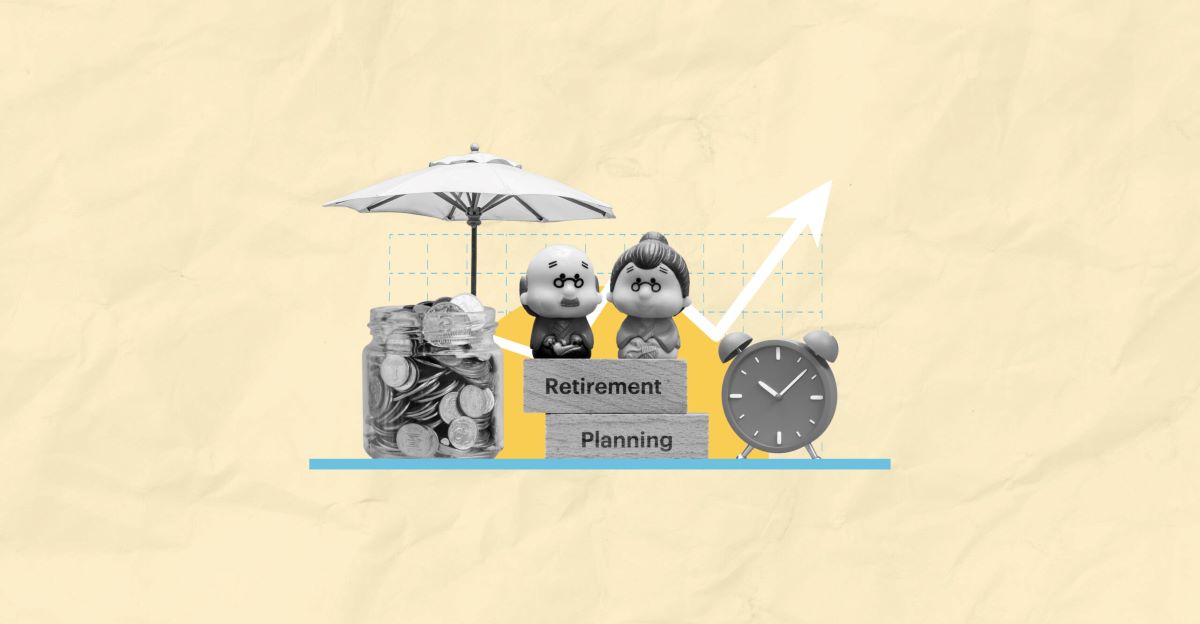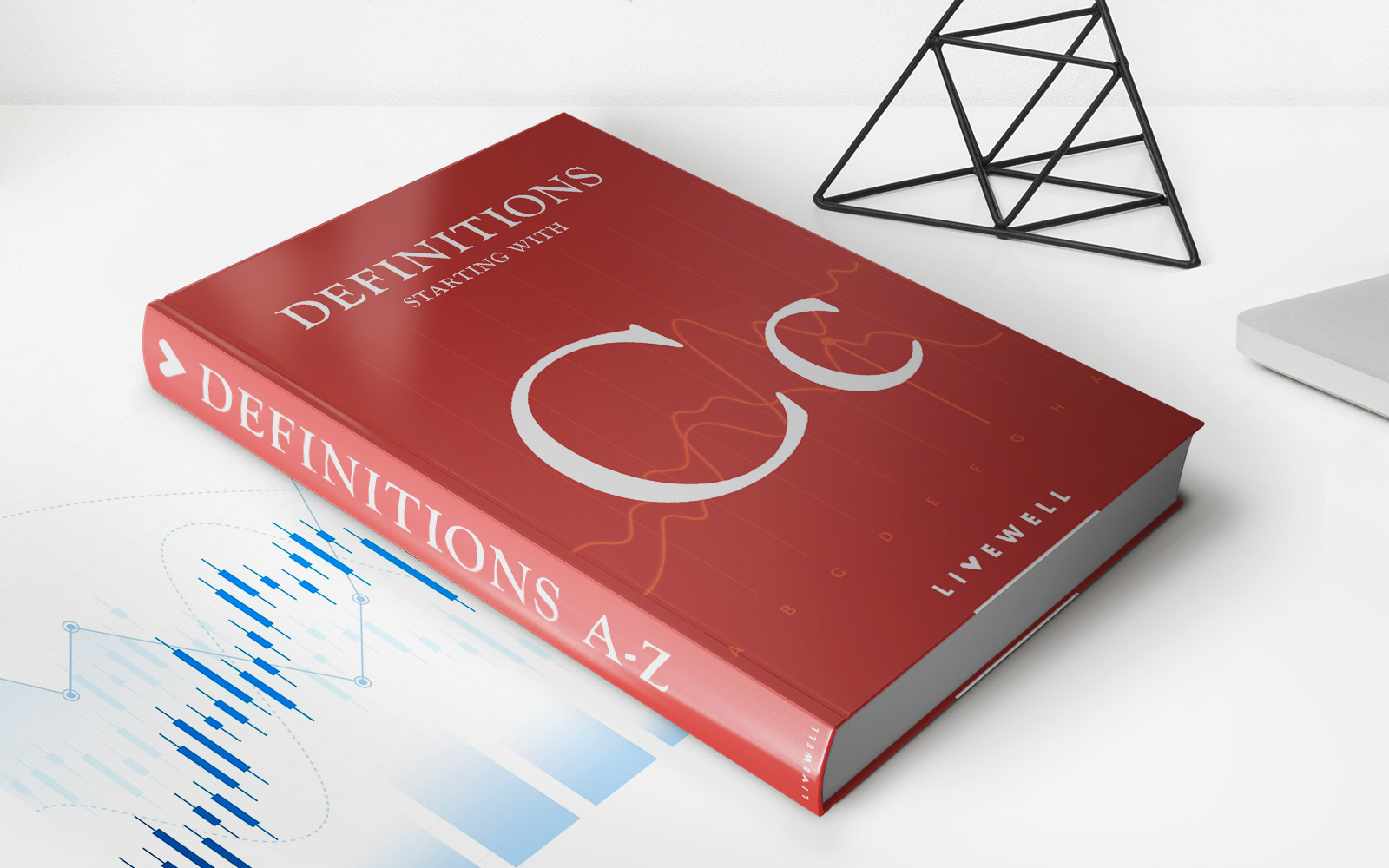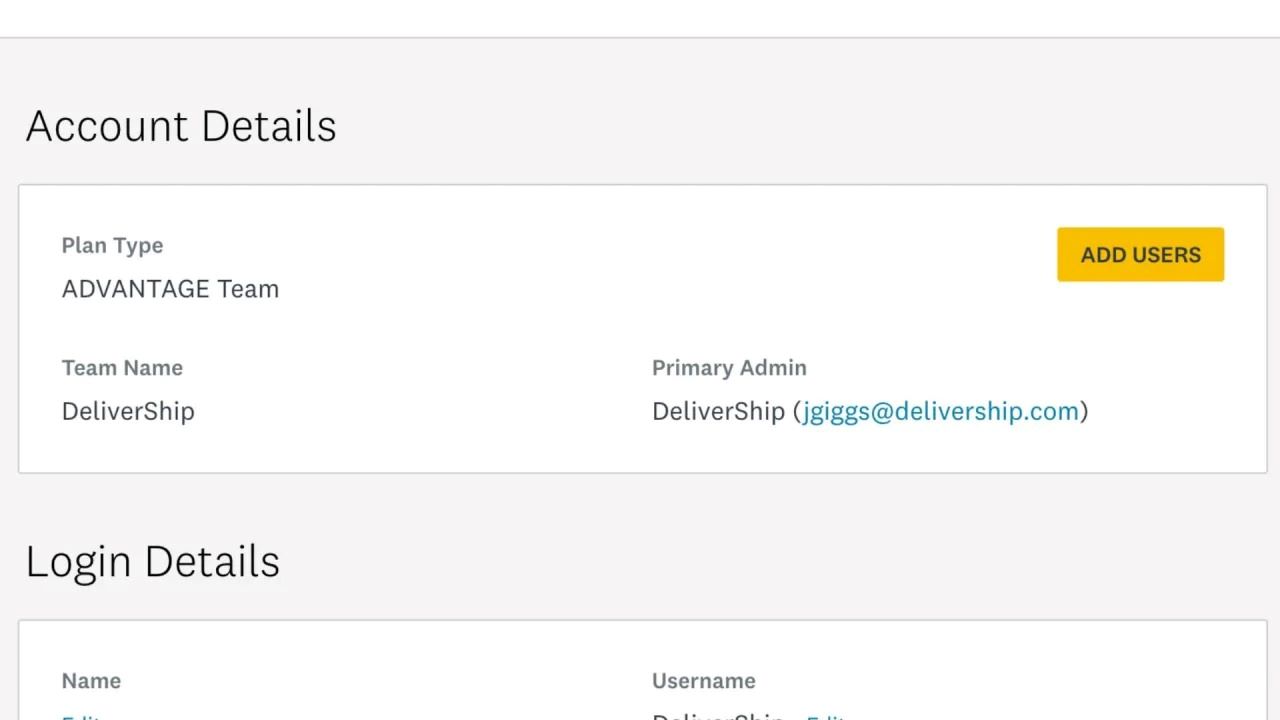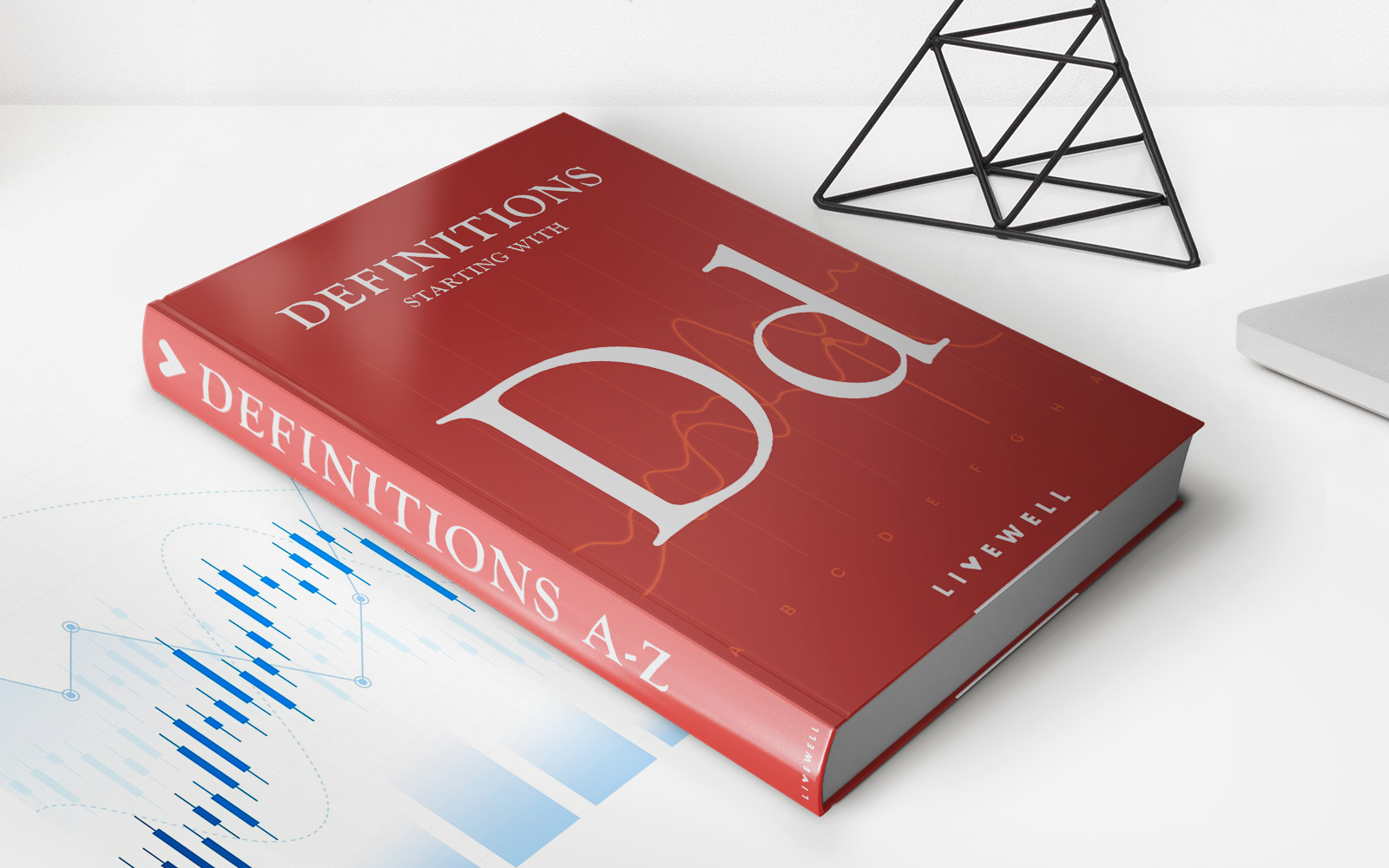Home>Finance>What Is A Chartered Retirement Planning Counselor?


Finance
What Is A Chartered Retirement Planning Counselor?
Published: January 21, 2024
Learn about the role and benefits of a Chartered Retirement Planning Counselor in the field of finance. Gain valuable insights into retirement planning and secure your financial future.
(Many of the links in this article redirect to a specific reviewed product. Your purchase of these products through affiliate links helps to generate commission for LiveWell, at no extra cost. Learn more)
Table of Contents
- Introduction
- What is a Chartered Retirement Planning Counselor?
- The Importance of Retirement Planning
- The Role of a Chartered Retirement Planning Counselor
- Required Qualifications and Training
- Services Provided by a Chartered Retirement Planning Counselor
- Benefits of Working with a Chartered Retirement Planning Counselor
- Finding and Choosing a Chartered Retirement Planning Counselor
- Frequently Asked Questions about Chartered Retirement Planning Counselors
- Conclusion
Introduction
Welcome to the world of retirement planning! As you approach the later stages of your life, it becomes increasingly important to ensure that your financial future is secure and comfortable. With so many factors to consider, navigating the realm of retirement planning can be overwhelming. This is where a Chartered Retirement Planning Counselor (CRPC) can be a valuable resource.
A Chartered Retirement Planning Counselor is a financial professional who specializes in assisting individuals and families in creating and implementing effective retirement strategies. They have the knowledge, skills, and expertise to help you make informed decisions about saving, investing, and managing your money, with the ultimate goal of achieving a financially stable and fulfilling retirement.
In this article, we will dive into the world of Chartered Retirement Planning Counselors and explore the important role they play in guiding individuals like yourself towards a secure retirement. We will discuss their qualifications and training, the services they provide, the benefits of working with them, and how to find and choose the right counselor for your needs.
Whether you are just beginning to think about retirement or are already deep into the planning process, understanding the role of a Chartered Retirement Planning Counselor can provide you with the knowledge and confidence to make smart financial decisions for your future. So, let’s embark on this journey together and uncover the valuable insights that a CRPC can offer!
What is a Chartered Retirement Planning Counselor?
A Chartered Retirement Planning Counselor (CRPC) is a financial professional who specializes in providing retirement planning advice and guidance to individuals and families. They are trained to help clients navigate the complexities of retirement planning and develop a comprehensive strategy tailored to their specific needs and goals.
To become a Chartered Retirement Planning Counselor, individuals must complete rigorous education, exams, and ongoing professional development. This designation is awarded by the College for Financial Planning to qualified financial professionals who have demonstrated a strong understanding of retirement planning principles and best practices.
CRPCs have a deep knowledge of various retirement planning topics, including investment strategies, tax considerations, risk management, social security optimization, estate planning, and more. They stay up-to-date with the latest industry trends and regulations to provide their clients with the most relevant and accurate advice.
One of the key responsibilities of a Chartered Retirement Planning Counselor is to help clients assess their current financial situation and determine their retirement goals. This involves considering factors such as desired lifestyle, estimated retirement expenses, anticipated life expectancy, and existing retirement savings. Based on this analysis, the CRPC develops a customized retirement plan that covers all aspects of personal finance, including savings strategies, investment allocation, and income distribution plans.
Additionally, a Chartered Retirement Planning Counselor provides ongoing support and guidance throughout the retirement planning journey. They monitor the performance of investments, adjust strategies as needed, and help clients navigate unexpected financial challenges that may arise during retirement.
Overall, a Chartered Retirement Planning Counselor is a trusted advisor who brings expertise and specialized knowledge to the retirement planning process. They can help individuals and families make informed decisions, optimize their retirement savings, and ultimately achieve their financial goals for a secure and prosperous retirement.
The Importance of Retirement Planning
Retirement planning is a crucial aspect of financial management that should not be overlooked. It involves setting financial goals and implementing strategies to ensure a comfortable and secure retirement. Here are some key reasons why retirement planning is of utmost importance:
- Financial Security: Retirement planning allows individuals to build a financial safety net for their future. By setting aside money and investing it wisely, retirees can maintain their desired standard of living and cover expenses such as housing, healthcare, and leisure activities.
- Longevity: People are living longer, which means that retirement can span several decades. Having a solid retirement plan in place ensures that individuals can sustain their lifestyle throughout their golden years.
- Reduced Financial Stress: Retirement planning helps individuals alleviate financial stress by providing a roadmap for financial stability. Knowing that they have a comprehensive plan in place gives retirees peace of mind and allows them to enjoy their retirement years with a sense of security.
- Maximizing Retirement Income: Effective retirement planning involves optimizing income sources such as pensions, Social Security benefits, and investment returns. By carefully managing these income streams, retirees can maximize their financial resources and make the most of their retirement savings.
- Preparing for Unexpected Events: Life is unpredictable, and unforeseen circumstances such as medical emergencies or job loss can have a significant impact on retirement plans. By incorporating contingency plans into their retirement strategy, individuals can better navigate unexpected events and mitigate their financial impact.
Overall, retirement planning is a proactive approach to financial management that allows individuals to take control of their future. It provides a roadmap for financial security, reduces financial stress, and ensures a comfortable and enjoyable retirement. Whether you are just starting your career or are already approaching retirement age, it is never too early or too late to start planning for your retirement.
The Role of a Chartered Retirement Planning Counselor
A Chartered Retirement Planning Counselor (CRPC) plays a vital role in helping individuals navigate the complexities of retirement planning and achieve their financial goals. Their expertise and specialized knowledge enable them to provide personalized guidance tailored to the unique needs and circumstances of each client. Here are some key aspects of the role of a CRPC:
- Assessment and Goal Setting: A CRPC starts by assessing a client’s current financial situation and retirement goals. They evaluate factors such as income, savings, investments, debts, expenses, and desired retirement lifestyle. Based on this assessment, they collaborate with the client to set realistic and achievable retirement goals.
- Customized Retirement Planning: Once the goals are set, a CRPC creates a comprehensive retirement plan tailored to the client’s individual circumstances. This plan includes strategies for saving, investing, and managing income during retirement. It takes into account factors such as risk tolerance, time horizon, tax considerations, and anticipated life expectancy.
- Investment Management: As part of the retirement planning process, a CRPC assists clients in managing their investments. They provide guidance on asset allocation, diversification, and selecting appropriate investment vehicles based on the client’s risk profile and long-term goals. They also monitor investment performance and recommend adjustments as needed.
- Tax Planning: A CRPC helps clients optimize their tax planning strategies to minimize tax liabilities during retirement. They provide guidance on tax-efficient investment options, income distribution strategies, and taking advantage of available tax deductions and credits.
- Social Security Optimization: One area where a CRPC can provide immense value is in optimizing Social Security benefits. They analyze a client’s eligibility and help determine the most advantageous claiming strategies based on factors such as age, marital status, and overall financial situation.
- Risk Management: A CRPC helps clients assess and mitigate potential risks that may impact their retirement savings. This includes identifying insurance needs, such as long-term care or life insurance, and ensuring adequate coverage to protect against unforeseen events.
- Estate Planning: A CRPC can also assist clients with estate planning considerations, ensuring that their assets are distributed according to their wishes and minimizing potential estate taxes and probate costs.
In summary, the role of a Chartered Retirement Planning Counselor goes far beyond simply providing retirement advice. They work closely with clients to develop customized retirement plans, manage investments, optimize tax strategies, and mitigate potential risks. Their comprehensive approach and in-depth knowledge help individuals achieve financial security and peace of mind as they enter their retirement years.
Required Qualifications and Training
Becoming a Chartered Retirement Planning Counselor (CRPC) requires individuals to meet specific qualifications and undergo comprehensive training. These requirements ensure that CRPCs possess the necessary knowledge and skills to effectively provide retirement planning advice. Here are the key qualifications and training needed to become a CRPC:
- Education: A minimum of a bachelor’s degree in a finance-related field or a relevant discipline is typically required. This educational foundation provides a solid understanding of financial concepts and principles that are crucial in retirement planning.
- Experience: While there is no specific experience requirement, practical experience in the field of financial planning is highly valued. Many CRPCs have prior experience working in the financial industry or have held positions in related areas such as investment management or insurance.
- CRPC Program: The main training component of becoming a CRPC is completing the CRPC program offered by the College for Financial Planning. This program covers various aspects of retirement planning, including investment strategies, tax considerations, risk management, estate planning, and client communication. It equips individuals with the necessary knowledge and skills to provide comprehensive retirement planning services.
- Examination: After completing the CRPC program, individuals must pass a final examination to earn the CRPC designation. This examination evaluates their understanding of retirement planning concepts, regulations, and ethical considerations.
- Ethics and Continuing Education: CRPCs are held to high ethical standards and are required to adhere to a strict code of conduct. They are committed to acting in the best interests of their clients and maintaining the highest professional standards. Additionally, CRPCs must participate in ongoing continuing education to stay up-to-date with industry trends, regulations, and best practices.
By fulfilling these qualifications and completing the necessary training, individuals can earn the esteemed CRPC designation. This certification signifies their expertise in retirement planning and their commitment to providing quality financial advice to clients.
When seeking assistance from a Chartered Retirement Planning Counselor, it is important to verify their credentials and ensure they hold the necessary qualifications and certifications. This will give you confidence in their ability to guide you on your retirement planning journey.
Services Provided by a Chartered Retirement Planning Counselor
A Chartered Retirement Planning Counselor (CRPC) offers a range of services to help individuals and families plan for a secure and comfortable retirement. Their expertise and specialized knowledge enable them to provide comprehensive guidance and support throughout the retirement planning process. Here are some of the key services provided by a CRPC:
- Retirement Goal Setting: A CRPC helps clients assess their retirement goals and determine the financial milestones they need to achieve. They work collaboratively with clients to set realistic and achievable objectives based on factors such as desired lifestyle, anticipated retirement age, and financial resources.
- Financial Analysis: A CRPC conducts a thorough analysis of a client’s financial situation, including income, expenses, assets, and liabilities. This analysis helps identify areas for improvement and provides a foundation for developing a personalized retirement plan.
- Customized Retirement Planning: Based on the client’s goals and financial analysis, a CRPC develops a tailored retirement plan. This plan outlines strategies for saving, investing, and managing money during retirement. It takes into account factors such as risk tolerance, time horizon, and tax implications.
- Investment Advice: A CRPC provides investment guidance to help clients make informed decisions about their retirement savings. They analyze investment options, assess risk profiles, and recommend suitable investment strategies to maximize returns and align with retirement goals.
- Tax Planning: A CRPC helps clients create tax-efficient retirement strategies. They assess potential tax implications of investment decisions, advise on tax-efficient withdrawal strategies, and identify opportunities to minimize tax burdens during retirement.
- Social Security Optimization: Maximizing Social Security benefits is a critical aspect of retirement planning. A CRPC helps clients understand their options, analyze claiming strategies, and determine the most advantageous time to start receiving benefits based on individual circumstances.
- Risk Management: A CRPC assesses potential risks that could impact a client’s retirement savings, such as market volatility, inflation, and unforeseen events. They help develop risk management strategies, such as asset diversification, insurance recommendations, and contingency plans, to protect against potential financial setbacks.
- Estate Planning: A CRPC assists clients in creating an estate plan that ensures their assets are distributed according to their wishes and minimizes potential estate taxes. They work in collaboration with estate planning attorneys to develop strategies for wealth transfer and protect legacies.
- Education and Communication: In addition to providing financial advice, a CRPC educates clients on retirement planning concepts and helps them understand the implications of their decisions. They strive to foster open and effective communication, ensuring that clients are well-informed and empowered to make informed choices about their retirement.
These are just some of the many services that a Chartered Retirement Planning Counselor can provide. By partnering with a CRPC, individuals can benefit from their expertise and guidance to navigate the complexities of retirement planning and work towards achieving their financial goals.
Benefits of Working with a Chartered Retirement Planning Counselor
Partnering with a Chartered Retirement Planning Counselor (CRPC) offers numerous benefits when it comes to planning for your retirement. Their expertise and specialized knowledge in retirement planning can provide valuable support and guidance throughout the process. Here are some key benefits of working with a CRPC:
- Expertise: CRPCs have in-depth knowledge and understanding of retirement planning principles and strategies. They stay up-to-date with industry trends, regulations, and best practices, ensuring that you receive the most accurate and relevant advice for your retirement goals.
- Customization: A CRPC tailors retirement plans to your specific needs and circumstances. They consider factors such as your desired lifestyle, risk tolerance, time horizon, and financial resources, creating a personalized plan that aligns with your goals and helps maximize your retirement savings.
- Comprehensive Approach: Retirement planning involves various aspects, including investments, taxes, social security, risk management, and estate planning. A CRPC takes a holistic view of your financial situation, integrating these components into a cohesive retirement strategy. This ensures that all critical areas are addressed and optimized.
- Objectivity: A CRPC provides unbiased advice, putting your best interests first. They have no vested interest in promoting specific products or services, allowing them to offer objective recommendations based solely on your unique needs and goals.
- Professional Network: CRPCs often have established networks of professionals, including attorneys, accountants, and insurance specialists. They can refer you to trusted professionals when additional expertise is needed, ensuring that all aspects of your retirement plan are handled by qualified professionals.
- Financial Coaching: Beyond the technical aspects of retirement planning, a CRPC can serve as a financial coach, helping you develop positive financial habits and behaviors. They provide support and encouragement, helping you stay on track towards your retirement goals and making adjustments as needed along the way.
- Peace of Mind: Retirement planning can be overwhelming and complex. By working with a CRPC, you can have peace of mind knowing that you have a knowledgeable professional guiding you through the process. This reduces stress and allows you to focus on enjoying your retirement years.
- Adaptability: A CRPC understands that retirement plans may need to be adjusted over time based on changing circumstances, such as market conditions, health concerns, or unexpected events. They are equipped to adapt and update your retirement plan as needed, ensuring that you stay on track towards your goals.
Working with a Chartered Retirement Planning Counselor can significantly enhance your retirement planning experience. Their expertise, comprehensive approach, and personalized guidance allow you to make informed decisions, optimize your retirement savings, and ultimately achieve a secure and fulfilling retirement.
Finding and Choosing a Chartered Retirement Planning Counselor
When it comes to finding and choosing a Chartered Retirement Planning Counselor (CRPC) who is the right fit for your needs, it’s important to consider several factors. Here are some steps you can take to find and select the right CRPC:
- Research: Start by conducting thorough research. Look for CRPCs in your area through online directories, professional associations, or referrals from friends and family who have had positive experiences with a CRPC. Take the time to read their profiles and learn about their experience, credentials, and areas of specialization.
- Qualifications: Verify that the CRPC you are considering holds the necessary qualifications and certifications. Ensure they have completed the required education and training to become a CRPC and are in good standing with the College for Financial Planning.
- Experience: Consider the CRPC’s level of experience in working with clients similar to you. Find out how long they have been practicing and inquire about their expertise in retirement planning. Look for testimonials or reviews from previous clients to gauge their track record of success.
- Communication: Schedule an initial consultation or phone call with potential CRPCs. This will allow you to assess their communication style, whether they listen attentively to your needs, and whether they are able to explain complex concepts in a way that is understandable and relatable to you.
- Approach: Understand the CRPC’s approach to retirement planning. Ask about their process, the services they provide, and how they create personalized retirement plans. Consider whether their approach aligns with your preferences and needs.
- Fee Structure: Inquire about the CRPC’s fee structure and how they are compensated for their services. Some work on a fee-only basis, while others may earn commissions from the sale of financial products. Make sure you have a clear understanding of how they are paid and how it may impact their recommendations.
- Compatibility: Personal chemistry and compatibility are essential in a successful working relationship. Choose a CRPC whom you feel comfortable with and trust. They will be guiding you through important financial decisions, so it’s crucial to have open and positive communication.
- Continuing Education: Ask about the CRPC’s commitment to ongoing professional development and continuing education. A good CRPC will stay current with industry trends and regulatory changes to provide you with up-to-date advice and strategies.
By taking these steps and considering these factors, you can increase the likelihood of finding a CRPC who is well-suited to guide you through your retirement planning journey. Remember, choosing a CRPC is a personal decision, and it’s important to find someone who understands your unique situation and can help you achieve your retirement goals.
Frequently Asked Questions about Chartered Retirement Planning Counselors
Here are some frequently asked questions about Chartered Retirement Planning Counselors (CRPCs) to help you gain a better understanding of their role and how they can assist you:
- What is a Chartered Retirement Planning Counselor?
- Why should I work with a CRPC?
- How do I find a qualified CRPC?
- How much do CRPCs charge for their services?
- Can a CRPC help me optimize my Social Security benefits?
- Can a CRPC help with estate planning?
- Do I need to already have significant retirement savings to work with a CRPC?
A Chartered Retirement Planning Counselor (CRPC) is a financial professional who specializes in providing retirement planning advice and guidance to individuals and families. They have expertise in areas such as investment strategies, tax planning, risk management, and social security optimization.
Working with a CRPC can provide you with valuable expertise and guidance in creating a comprehensive retirement plan. They can help you assess your financial situation, set retirement goals, develop personalized strategies, optimize your investments, and navigate the complexities of retirement planning.
You can search for qualified CRPCs through online directories, professional associations, or ask for referrals from friends and family. It’s important to research their qualifications, experience, and areas of specialization to ensure they are a good fit for your needs.
The fee structure for CRPCs can vary. Some may work on a fee-only basis, charging an hourly or fixed fee for their services. Others may earn commissions from the sale of financial products. It’s essential to discuss and clarify the fee structure with the CRPC you are considering before engaging their services.
Yes, a CRPC can help you optimize your Social Security benefits. They have expertise in analyzing various claiming strategies and can provide guidance on the most advantageous time to start receiving benefits based on your individual circumstances and retirement goals.
While estate planning is not the primary focus of a CRPC, many have knowledge and experience in this area. They can collaborate with estate planning attorneys to help you develop strategies for wealth transfer, minimize estate taxes, and ensure your assets are distributed according to your wishes.
No, you do not need to have significant retirement savings to work with a CRPC. They can help individuals at various stages of retirement planning, whether you are just starting to save for retirement or have already accumulated substantial assets. They can assist in creating a customized plan based on your current financial situation and long-term goals.
These are just a few of the common questions about Chartered Retirement Planning Counselors. If you have more specific inquiries or would like to explore how a CRPC can assist you, it’s best to contact them directly for a consultation.
Conclusion
In conclusion, working with a Chartered Retirement Planning Counselor (CRPC) can have a profound impact on your retirement planning journey. These financial professionals bring expertise, knowledge, and a comprehensive approach to help you navigate the complexities of retirement planning and achieve your financial goals.
A CRPC can provide personalized guidance and support in assessing your financial situation, setting retirement goals, and developing a customized retirement plan. They offer expertise in areas such as investment strategies, tax planning, risk management, social security optimization, and estate planning.
- Expertise: CRPCs possess specialized knowledge in retirement planning principles and strategies. They continuously stay informed about industry trends, regulations, and best practices to offer the most accurate and relevant advice.
- Customized Approach: CRPCs tailor retirement plans to your specific needs, considering factors such as your desired lifestyle, risk tolerance, and financial resources. They create personalized strategies to help maximize your retirement savings and achieve your goals.
- Comprehensive Services: CRPCs offer a range of services such as financial analysis, investment advice, tax planning, social security optimization, risk management, and estate planning. They provide holistic guidance, taking into account all critical aspects of retirement planning.
- Peace of Mind: Working with a CRPC can provide you with peace of mind, knowing that you have a knowledgeable professional guiding you through the retirement planning process. Their objectivity, expertise, and support can help reduce stress and instill confidence in your financial future.
- Long-Term Partnership: Building a long-term relationship with a CRPC allows you to adapt your retirement plan as your circumstances change over time. They can help you stay on track, make adjustments when needed, and provide ongoing support and guidance throughout your retirement years.
Whether you are just starting to plan for retirement or are in the midst of the process, partnering with a Chartered Retirement Planning Counselor can provide immense value. Their expertise, comprehensive approach, and personalized guidance can help you navigate the complexities of retirement planning, optimize your financial resources, and ultimately achieve a secure and fulfilling retirement.


